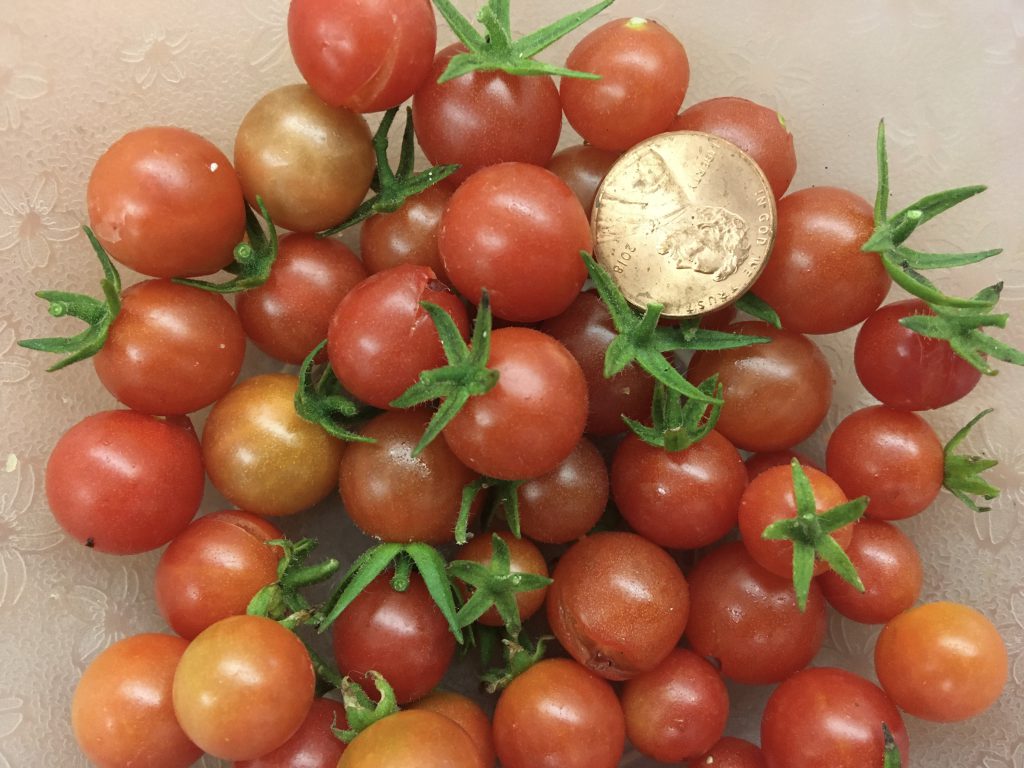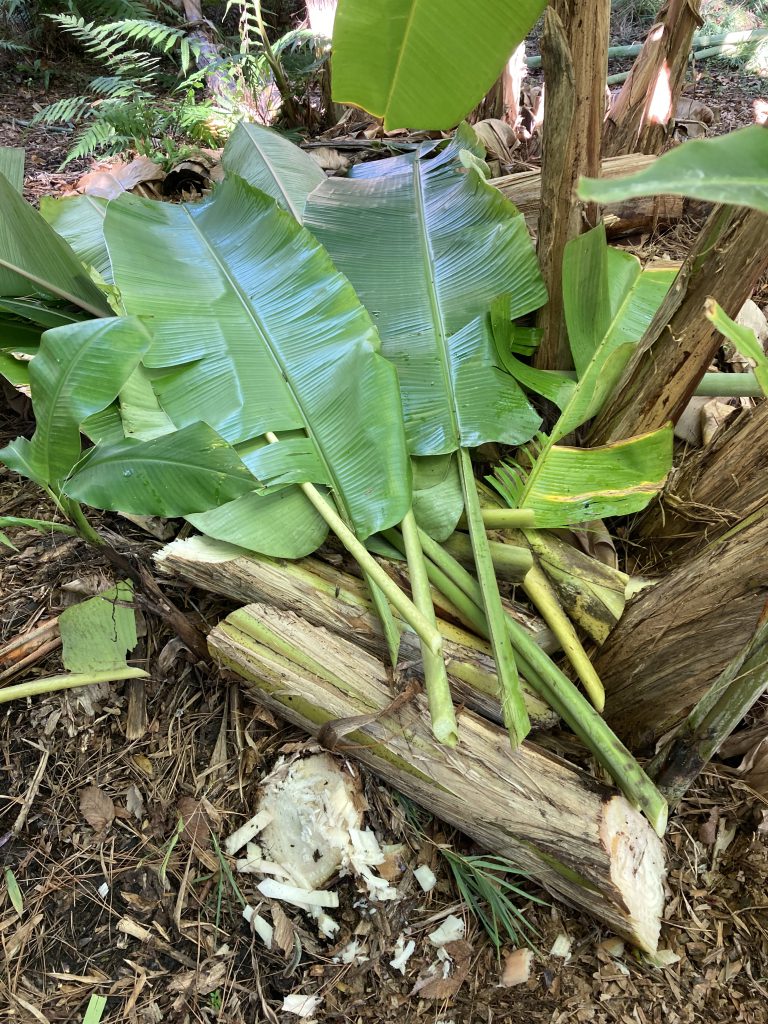View the recording of our Edible Landscaping webinar on YouTube here.
The concept of edible landscaping primarily applies to growing vegetables, herbs and fruit trees in a way where it fits in with your home landscape. With proper plant selection and cultural practices, you can have a beautiful edible landscape that produces food year round. Use the nine Florida-Friendly Landscaping principles to help guide your landscape decisions to grow edibles in a way that conserves water and reduces fertilizer and pesticide use.
Right Plant, Right Place
Match plants to the site conditions of your yard including soil moisture (wet/dry) and light exposure (sun/shade). Consult the Dooryard Fruit Varieties EDIS publication to select fruit trees and cultivars appropriate for your region (North, Central, South Florida). Select vegetables for planting each season according to the Florida Vegetable Gardening Guide, https://edis.ifas.ufl.edu/vh021 in English or Spanish https://edis.ifas.ufl.edu/hs1383.

Water Efficiently
Use drip or micro irrigation for vegetable gardens, fruit trees, plants in containers to water efficiently. Observe your plants and watch for signs of water stress (wilting leaves, droopiness). Use a rain gauge to monitor rainfall and adjust irrigation accordingly. Water at the base of plants, in the morning before 10am or in the evening after 4 pm, to reduce water loss due to evaporation.
Fertilize Appropriately
Fertilize according to special requirements of your fruits and vegetables. Amend soil with compost and other organic amendments to build the soil, provide nutrients, and increase water holding capacity. Get a soil test annually to check for the pH and nutrients, as vegetables extract a lot of nutrients from the soil. For more information on soil testing click here.
Compost and Mulch
Compost your yard trimmings, leaves and food waste in a compost bin or pile. Add finished compost to your garden beds to build the soil. Consider worm composting to recycle kitchen scraps and paper waste. Mulch your vegetable garden, herbs and fruit trees to control weeds, conserve moisture, regulate soil temperature and keep crops clean. A fine mulch can be applied to seedlings to protect the soil from drying out in early growth stages. Use organic materials such as leaves, hay and straw for mulch on tender vegetables. Apply a 2” to 3″ layer of wood chips or pine bark mulch to edible shrubs and fruit trees.

Attract Beneficial Insects
Plant a variety of flowering plants that provide nectar and pollen to attract beneficial insects, which will prey on pests in your edible landscape. Pollinators are essential for a fruitful garden, since the majority of fruit and vegetable crops need pollination to set fruits. Birds, toads, bats, anoles, and lizards are also beneficial in the garden. Use strategies to provide habitat for them so they can consume insect pests. Scout for pests often, use hand control methods, clean up fallen fruit and use less toxic pesticides first to control pests when a spray is needed, see Natural Products for Managing Landscape and Garden Pests in Florida.
Resources
Florida-Friendly Edible Landscaping EDIS series https://edis.ifas.ufl.edu/collections/ffl-edible-landscaping
Florida Vegetable Gardening Guide https://edis.ifas.ufl.edu/vh021
Dooryard Fruit Varieties https://edis.ifas.ufl.edu/mg248
Natural Products for Managing Landscape and Garden Pests in Florida https://edis.ifas.ufl.edu/in197
Follow Us!
We have several ways to connect. Join our UF/IFAS Extension Hillsborough County
Facebook, Florida-Friendly Facebook, YouTube, Instagram, Eventbrite, Blogs, Website
If you have any questions, please contact the UF/IFAS Extension Hillsborough County at 813-744-5519 or email hillsmg@mail.ufl.edu.
The University of Florida is an Equal Opportunity Institution.
 4
4
